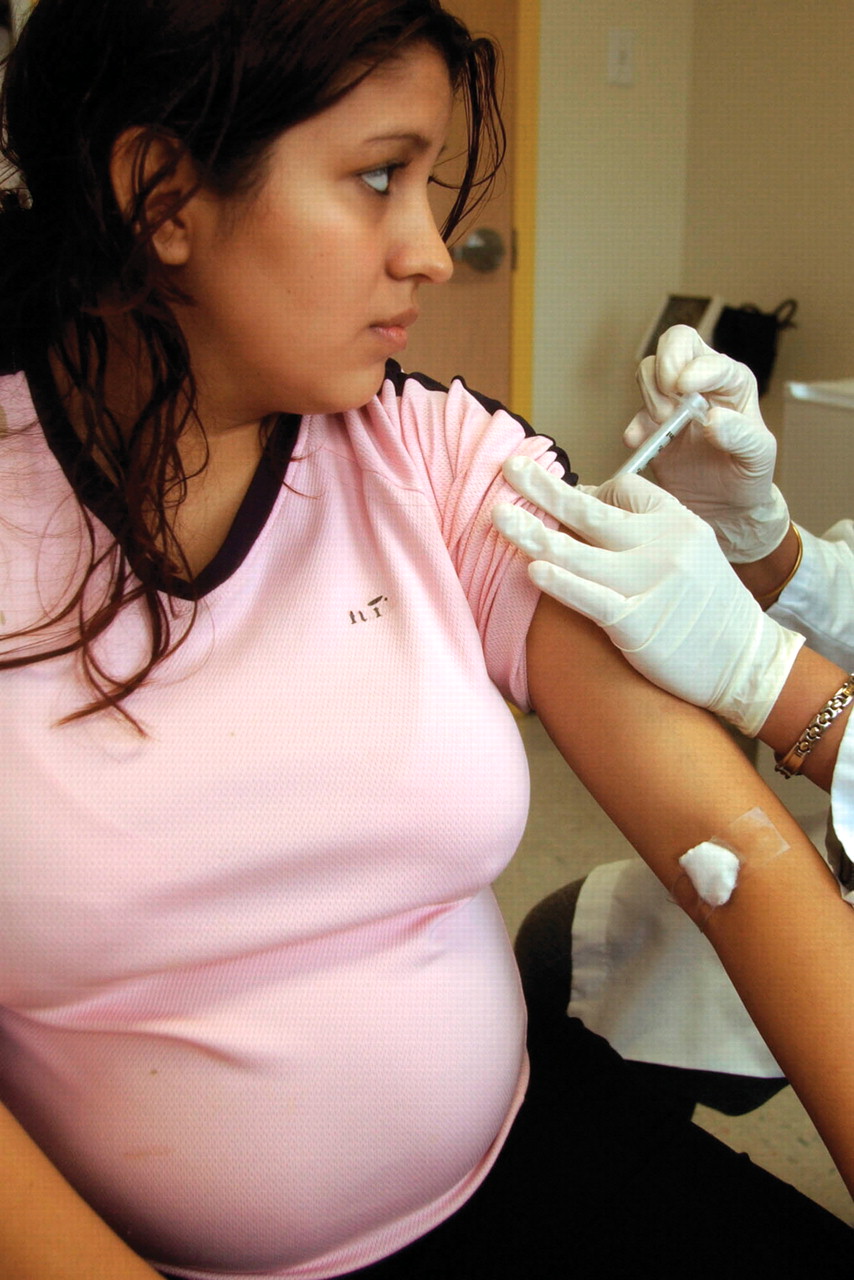Schizophrenia Risk Linked To Flu Virus Exposure

(AP Photo/Ron Heflin)
The finding comes from Alan Brown, M.D., an associate professor of clinical psychiatry at New York State Psychiatric Institute, and colleagues. They were expected to present the results of their study, which has not been published yet, at APA’s 2004 annual meeting in New York City this month.
“These results provide the first serologic evidence that prenatal exposure to influenza plays a role in the etiology of schizophrenia,” Brown and his team said.
In fact, as Ezra Susser, M.D., a psychiatrist, head of the division of epidemiology at Columbia University School of Public Health and one of the study authors, told Psychiatric News, “Although the study had limited power and raises many questions, these serologic results constitute perhaps the strongest evidence for a role of flu virus in schizophrenia.”
Nonetheless, Susser cautioned, it is too soon to recommend that women who are thinking about becoming pregnant, or even those early in pregnancy, be vaccinated against the flu virus in hopes of avoiding having a child with schizophrenia. “Such a recommendation,” he explained, “would have to take into consideration much more than a single study result as it’s a matter of public health policy. This study would tend to shift the evidence toward supporting such a policy, at least prior to pregnancy, but I wouldn’t want to go further than that.”
The reason that their study became possible, Brown explained to Psychiatric News, is “because it has only been recently that a birth cohort with archived prenatal serum specimens, which are essential for serologic documentation of infection, has passed through the age of risk for schizophrenia. Pregnant women are not routinely screened for influenza antibody.”
In other words, Brown and his team had access to frozen blood samples taken from pregnant women whose offspring a number of years later developed schizophrenia, as well as to blood samples taken from pregnant women whose offspring did not develop schizophrenia.
They evaluated blood samples from 64 pregnant women whose children later developed schizophrenia and from 125 pregnant women whose children did not. The researchers then examined the blood samples for the presence of flu virus antibodies and assessed whether the blood from women whose children eventually developed schizophrenia contained flu antibodies more often than did blood from women whose children did not develop the illness.
They found a link between the presence of the antibodies and schizophrenia in the offspring suggesting that prenatal infection with flu virus might be able to trigger schizophrenia.
If women had been infected with the flu virus during the first trimester of pregnancy, they appeared to be seven times more likely to give birth to a child who developed schizophrenia than if they had not been infected with the flu virus at this time. If women had been infected with the flu virus during the first half of pregnancy, they appeared to be three times more likely to give birth to a child with the disorder than if they had not been infected. In fact, study results suggested that 14 percent of schizophrenia cases might not have occurred if flu exposure during early to mid-pregnancy had been prevented.
These results thus provide the first blood evidence that prenatal exposure to influenza is linked to schizophrenia, Brown and his team concluded. “Although replication is warranted, these findings suggest that preventing influenza during pregnancy may eliminate a sizable proportion of schizophrenia cases.”
Psychiatric News asked Brown whether anyone was doing a study to see whether flu vaccination early in pregnancy can actually reduce the number of schizophrenia cases. Brown replied that he was not aware of any such study.
Research will also be needed to determine whether the flu virus might trigger something in a fetus that leads to later schizophrenia. Brown and his colleagues addressed this issue in the May American Journal of Psychiatry.
Cytokines, a family of polypeptides, are crucial immune players against infections. Elevated cytokine levels also appear to increase vulnerability to developmental brain damage in children. So Brown and his colleagues decided to see whether second-trimester levels of four cytokines—interleukin-8, interleukin-1β, interleukin-6, and tumor necrosis factor-α—might be higher in the blood of 59 women whose offspring later developed schizophrenia-spectrum disorders than in the blood of 105 women whose offspring did not develop such disorders.
Second-trimester levels of interleukin-1β, interleukin-6, and tumor necrosis factor-α were similar in the blood from the two groups of women, the researchers found. However, the second-trimester interleukin-8 levels in blood from mothers with schizophrenia offspring were significantly higher than those in blood from mothers whose children did not develop schizophrenia.
“Elevated interleukin-8 is associated with immunologic processes that are secondary to a number of viral and bacterial infections as well as inflammatory disorders,” Brown explained to Psychiatric News. “It is possible that our finding may explain why not only influenza but several other viral infections are associated with schizophrenia.”
The study report, “Elevated Maternal Interleukin-8 Levels and Risk of Schizophrenia in Adult Offspring,” is posted online at http://ajp.psychiatryonline.org/cgi/content/full/161/5/889?. ▪
Am J Psychiatry 2004 161 889



